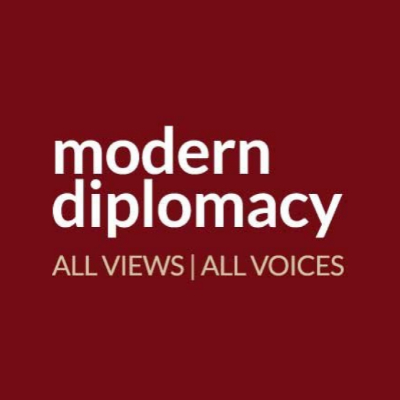 Modern Diplomacy Article Rating
Modern Diplomacy Article RatingSix Reasons Why Trump's Iran Negotiations Have a Greater Chance of Success
- Bias Rating
- Reliability
15% ReliableLimited
- Policy Leaning
54% Medium Right
- Politician Portrayal
-21% Negative
Continue For Free
Create your free account to see the in-depth bias analytics and more.
By creating an account, you agree to our Terms and Privacy Policy, and subscribe to email updates.
Bias Score Analysis
The A.I. bias rating includes policy and politician portrayal leanings based on the author’s tone found in the article using machine learning. Bias scores are on a scale of -100% to 100% with higher negative scores being more liberal and higher positive scores being more conservative, and 0% being neutral.
Sentiments
21% Positive
- Liberal
- Conservative
| Sentence | Sentiment | Bias |
|---|---|---|
Unlock this feature by upgrading to the Pro plan. | ||
Reliability Score Analysis
Policy Leaning Analysis
Politician Portrayal Analysis
Bias Meter
Extremely
Liberal
Very
Liberal
Moderately
Liberal
Somewhat Liberal
Center
Somewhat Conservative
Moderately
Conservative
Very
Conservative
Extremely
Conservative
-100%
Liberal
100%
Conservative

Contributing sentiments towards policy:
62% : Now, in what is expected to be his final term, Trump is focused on cementing a lasting legacy.58% : Second, President Trump is motivated to secure a lasting diplomatic legacy, aiming for achievements like ending the wars in Ukraine and Gaza, rather than pursuing ideological wars.
57% : The 2015 Iran nuclear negotiations ultimately resulted in the fragile Joint Comprehensive Plan of Action (JCPOA).
56% : The prospect for a new agreement between Iran and Trump appears significantly stronger compared to the fragile 2015 JCPOA, largely due to six major factors.
49% : Trump Seeks a Diplomatic Legacy, Not War Trump is primarily driven by strategic goals as well as personal ambitions rather than ideological disputes.
46% : U.S.-Iran Bilateral Talks Offer a Greater Prospect of Agreement Than the P5+1 Format Unlike the 2015 JCPOA, which involved six world powers alongside Iran, the 2025 negotiations between Trump and Tehran are fundamentally bilateral, with Oman serving only as a mediator.
46% : According to this mechanism, if no new deal is reached, the automatic re-imposition of UN sanctions could take effect in October 2025 at the request of the UK, France, or Germany without requiring a new Security Council vote.
42% : In contrast to some mainstream Republican leaders, Trump operates independently of neoconservative hawks and pro-Israel lobbies.
42% : However, with Trump now in the White House and Republicans controlling both chambers of Congress, the political calculus has shifted.
37% : Third, Iran now has stronger incentives to reach an agreement to avoid a devastating conflict and the automatic reimposition of UN sanctions through the "snapback" mechanism.
36% : Iran Iran has strong incentives to reach an agreement rather than risk a military confrontation with Trump, which could result in airstrikes on its nuclear infrastructure.
15% : Trump has internalized the historical lessons of George W. Bush's costly and prolonged war in Iraq and is unlikely to entangle the U.S. in another Middle Eastern military conflict.
*Our bias meter rating uses data science including sentiment analysis, machine learning and our proprietary algorithm for determining biases in news articles. Bias scores are on a scale of -100% to 100% with higher negative scores being more liberal and higher positive scores being more conservative, and 0% being neutral. The rating is an independent analysis and is not affiliated nor sponsored by the news source or any other organization.






















